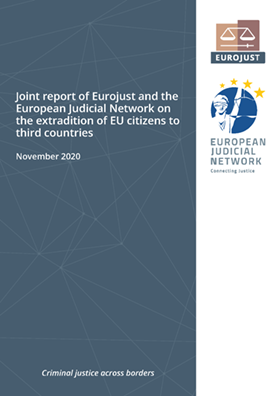
In its 2016 Petruhhin judgment, the Court of Justice of the European Union (CJEU) introduced specific obligations for Member States that do not extradite their own nationals and receive an extradition request for the prosecution of an EU citizen who is a national of another Member State and has exercised his right to free movement.
On 4 June 2020, the Council requested that the European Union Agency for Criminal Justice Cooperation (Eurojust) and the European Judicial Network (EJN) analyse how cases of requests for the extradition of EU citizens by third countries are handled in practice, and that they report to the Council by 1 December 2020.
The aim of this joint report by Eurojust and the EJN is to inform the Council of the main difficulties encountered by practitioners in this field. It is based on an analysis of Eurojust cases registered after the delivery of the Petruhhin judgment in September 2016 and on the experience of the EJN. Therefore, the report does not aim at providing an exhaustive overview of all possible issues raised by the abovementioned case-law across the EU, but focuses only on issues identified by Eurojust and the EJN in their respective casework.
The report confirms that the application of the CJEU’s case-law on the extradition of EU citizens raises several practical and legal issues, and that Eurojust and the EJN have played an important role in facilitating cooperation between the Member States involved, and sometimes also with third countries.
